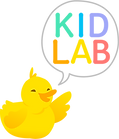The Kids In Development (KID) Lab at SMU


In our lab, we conduct research aimed at understanding how young children grow and development. We are always looking for parents and children who are interested in participating in our studies. Below are some frequently asked questions about what we do and what it is like to be take part in a research study. You can find details on our current studies here.
For parents and families:
Frequently Asked Questions:

What does participation include?
Typically, our studies require either a one-time visit to our lab on the east campus at SMU or a virtual visit with us via Zoom video conference. Participating generally requires some paperwork to be completed by the parent and an interactive session for your child. During the interactive session, your child will interact with the research assistant either in person or via Zoom completing a series of child-friendly activities. Sessions can be scheduled at your convenience for days, evenings, or weekends.
Who will I be working with?
All of our studies are run by trained research assistants that have substantial experience working with children of all ages. All research assistants are directly supervised by our graduate students, Sneh & Syakira, lab manager, Sarah Z., and/or lab director, Dr. Kucker.
Can I stay with my child the entire time?
Yes, our studies are designed to be flexible to accommodate both parents and children. During our in-lab studies, there is plenty of space in our lab for both you and your child. For our virtual studies, your child can sit by themselves on camera, or on your lab - whichever is most comfortable for you and them.
What if I have other children? Can siblings come along?
During our in-lab studies, siblings are more than welcome. In fact, we can arrange for a research assistant to babysit the sibling in our waiting room during the study. Infant siblings are welcome to come into the experiment room with you if you prefer as long as they are not a distraction to your child who is participating in the study. For online studies, we will ask that siblings simply try to remain off camera if possible for privacy reasons.
What do I get for participating?
After participating, your child will receive a small prize (e.g. a story book or certificate). We will typically try to provide you with informal feedback about your child's performance compared to other children his/her age depending on the study. For most studies, we will also offer monetary compensation (e.g. $15-$40).
Is there anything else I should know?
All of our projects are approved by the Internal Review Board at Southern Methodist University. This means that our projects have been reviewed by a panel of faculty members and deemed to be ethical, scientifically beneficial, appropriate for the population (children), and meets a high scientific standard. The projects are all also directly supervised by Dr. Sarah Kucker, a faculty member in psychology with over a decade of experience in child development research.
How do I sign up?
If you are interested in participating in any of our current research studies (found here), or just want to be on our list for future studies, just sign up for our research registry, send us an email or fill out our contact form.
Are there more studies I can do?
Yes! If you sign up for our registry, you'll be the first to know when the next study comes around. When we or our colleagues at SMU have another in-lab study, we will reach out. In the meantime, you can participate in studies virtually! Our friends at https://childrenhelpingscience.com/ have hundreds of studies from researchers across the world for parents and children of different ages (sometimes including our own studies too). Check it out!
Where can I get more information about child development?
There are a lot of great references online, as well as some not so great. Below are links to some of our favorite empirically-based resources.
-
The Child & Family Blog includes a range of articles on child development, written by experts for families: https://childandfamilyblog.com/
-
The Zero to Three program has good information on milestones for your child, advice on screen time, and advice for fostering learning in all children from birth through preschool.
-
The Harvard Center for the Developing Child has a lot of resources, including the following video on how play is beneficial. https://youtu.be/pjoyBZYk2zI
-
Some of our colleagues at the the Boys Town National Research Hospital aim to increase awareness about language delays and Developmental Language Disorder - a disorder more prevalent than autism. https://www.dldandme.org/
-
The Lego Foundation (yes, the same one that makes those colorful toy blocks) has an education initiative on on improving development for ALL children across all backgrounds, cultures, and environments. https://www.legofoundation.com/en/why-play/
Can you suggest any readings where I can learn more?
Yes! Below are a few great easy-to-read articles on the science behind how children learn to talk.
-
This first is an article (here) on language development from a recent parenting magazine, written by a lab colleague trained in the science of child development.
-
This article, written by our own Dr. Sarah Kucker, on the Child & Family Blog explains how digital media may impact children's development: https://childandfamilyblog.com/how-does-digital-media-shape-young-childrens-word-learning/
-
The article here is written by an expert in the field, but reviewed by a kid who asked real-life questions and helped improve the paper before it was posted online. It's targeted toward both older kids and adults that don't have a background in psychology. https://kids.frontiersin.org/article/10.3389/frym.2017.00045